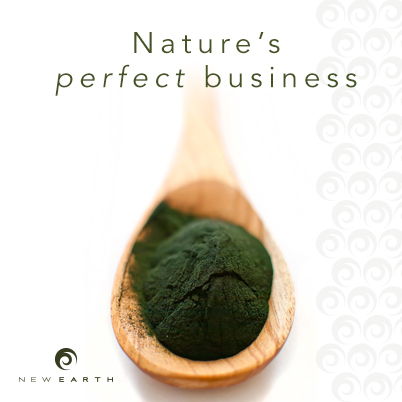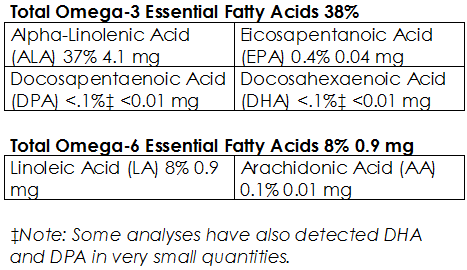by guest contributor Barbara Swanson

Essential Fatty Acids (EFAs) are what makes a fat either a ‘good fat’ or a ‘bad fat’. They are the micronutrient building block of nerve function, brain tissue, hormones and much more.
Today, many people believe they must use an essential fatty acid supplement to be healthy. Many people believe they need an isolated, concentrated supplement, like fish oil, to really do any good for their body and mind.
The truth is, the body can create fatty acids–omegas 3, 6 and 9, plus any others–except for two truly essential fatty acids. LA (linoleic acid, an omega-6 fatty acid) and ALA (alpha linolenic acid, an omega-3 fatty acid) are called the “parent” fatty acids of each group.
LA: This is the parent omega-6 fatty acid. It must come from your diet. Oftentimes, omega-6 EFAs get a bad rap–that we ‘eat too many’ and they lead to inflammation. This is partly true–most people do get more omega-6 EFAs than omega-3s. That imbalance can be detrimental to health. This is also partly untrue. LA is extremely important in heart function and has a significant role in maintaining healthy cholesterol levels.
ALA: This is the parent omega-3 fatty acid. It also must come from your diet. We can create other very important omega-3 fatty acids, such as EPA and DHA, from ALA–but our body is not very efficient in doing so. Women do so better than men. Good ALA omega-3 sources include chia seeds, flax seeds and walnuts, along with algae.
It is recommended to also eat good sources of EPA and DHA. These include oily cold-water fish like salmon, mackerel and herring; and freshwater microalgae along with sea algae also contain these important EFAs.
Omega-3 fatty acids are derived from alpha-linolenic acid (ALA). ALA is then converted to EPA and DHA. Omega-3 fatty acids are necessary for your brain and nervous system. They are shown to increase your brain’s growth hormone, and to improve mood, sleep, learning and memory. Studies suggest they also offer protection against depression, mild cognitive impairment and different types of dementia. They also support the mitochondria in your cells (your energy factories).
Science is discovering that the balance between these two types of EFAs may be much more important than previously thought. This means we need to eat both types of EFAs to achieve our best health. AFA algae is unique in that it contains both omega-3 and omega-6 EFAs, in a nearly ideal match to human needs.
EFAs in AFA Bluegreen Algae
